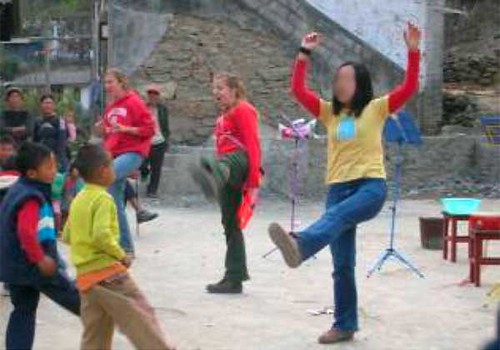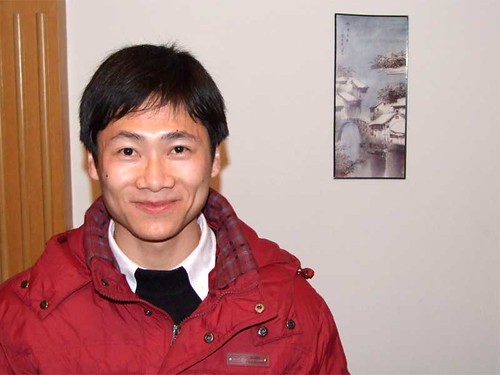Once a week, generally after 10pm as he’s so busy working before, Ben phones home. It’s been well over half a year a year and a half now since he left his hometown in Shaanxi province to try his luck in the capital. Like most Chinese (or those who can get train tickets), he spent a week home over spring festival, but otherwise he keeps in touch with his parents through these thirty to forty minute long calls.
Ben’s Mum is a farmer, and Ben is quick to remind me that Chinese farmers are a world apart from their English counterparts. “In England, a farmer has a lot of land which they own. In China, they only have very small land to farm.”* (And, of course, Chinese farmers don’t own their land.) His phone conversations with his mum consist mostly of her asking if he’s wearing enough warm clothes. This, needless to say, is unlike farming in that it’s something England and China have in common (yes Mama, if you’re reading this, I’m wearing lots of sweaters).
His Dad works as a salesman for a pharmaceutical company in a town 300 kilometres away from his hometown. This means he can only afford the time and money to visit his wife at home once a month. It’s a common story across China, where fathers from the countryside seek better paid work in bigger cities, by necessity leaving their families behind. When he started this job 20 to 30 years ago, he earnt 70 or 80 kuai (£7) a month. Now he earns 3000 kuai (£300). On the phone with Ben, he is eager to ask about the little details of how his son’s business is going.
Near the end of our chat, Ben made a point of mentioning that his father, 53, can’t work forever and that he himself is keen to start supporting his parents as soon as he can. This is also unlike farming in that isn’t, I’m afraid, the first thing on the mind of a young English graduate (I know this because I am one) when he’s considering the reasons he wants to start earning money.




